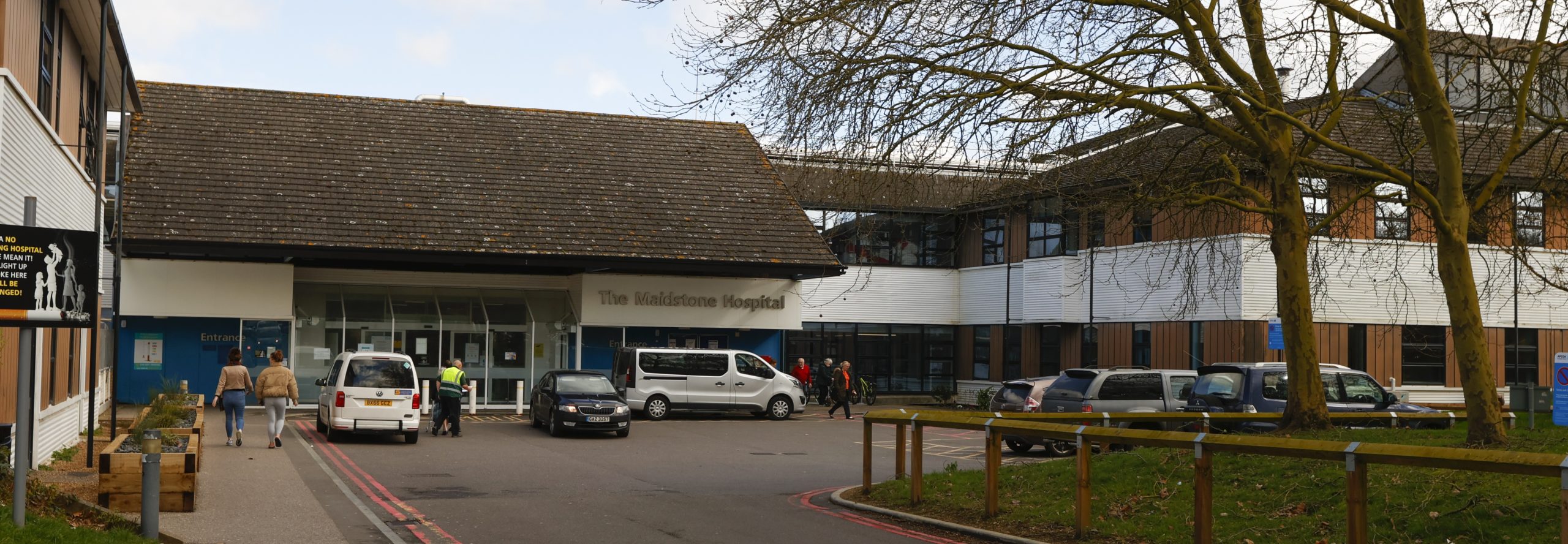
Maidstone and Tunbridge Wells NHS Trust Visitor policy – Effective from 6 July 2020
Protecting our patients and those who care for them is our top priority during the coronavirus (Covid-19) pandemic.
ALL VISITORS MUST BE SYMPTOM FREE AND NOT UNDER ANY SELF-ISOLATION CONDITIONS. DO NOT enter our hospitals under any circumstances if you are unwell – especially if you have a high temperature or a new continuous cough, or you are shielding for any reason.
Effective from Monday 6 July 2020, our visitor policy is changing and patients are permitted one visitor at a specified hour each day. Please refer to the following detailed guidance:
- Each patient is allowed one visitor (close family or loved one only). Two visitors from the same household or bubble may be allowed in exceptional circumstances, such as for patients receiving end of life care or where the visitor themselves needs assistance – this must be arranged with the nurse in charge of the ward in advance by telephone.
- Each ward is assigned an hour per day for visiting to manage visitor numbers within the hospital sites. Please refer to details below for specific ward visiting times:
Maidstone Hospital Ward visiting times:
- Acute Stroke Unit/Cornwallis Ward: 2pm – 3pm daily
- John Day Ward/Chronic Pain Unit/Intensive Care Unit: 3pm – 4pm daily
- Chaucer Ward/Coronary Care Unit/Culpepper Ward/Whatman Ward: 4pm – 5pm daily
- Pye Oliver Ward/Mercer Ward: 5pm – 6pm daily
Tunbridge Wells Hospital Ward visiting times:
- Ward 10/20/30: 2pm – 3pm daily
- Intensive Care Unit/Ward 11/Ward 31: 3pm – 4pm daily
- Ward 12/Antenatal/Ward 32: 4pm – 5pm daily
- Coronary Care Unit/Ward 2/Ward 33: 5pm – 6pm daily
- Ward 32 -For elective patients on Ward 32 (Tunbridge Wells Hospital) only one visitor from the patient’s household is allowed.
- Chronic Pain Unit – For patients on the Chronic Pain Unit (Maidstone Hospital) only one visitor from the patient’s household is allowed.
- Covid wards – No visiting is permitted on Covid wards except in compassionate circumstances (such as patients receiving end of life care). This includes the Acute Medical Unit and Acute Assessment Unit at both hospital sites.
- Lord North Ward – Due to the vulnerability of the patients, no visiting is permitted on Lord North Ward at Maidstone Hospital, except in compassionate circumstances.
- Maternity Departments – Partners of people/parents in labour are to be able to stay throughout labour including in the early stages of labour and during induction of labour on the antenatal ward. The same partner can remain until discharge from post-natal ward. For people/parents in the antenatal ward, but not in labour, only the nominated birth partner may visit. NO visitor/partner to attend scan or any antenatal appointment. NO children permitted in any Maternity Departments.
- Neonatal Unit – one parent only at any time. NO siblings.
- Paediatric Wards – one parent/carer to be with the child as agreed with ward staff.
- Outpatients – due to social distancing in the waiting areas of Outpatients it is not possible to allow outpatients to have an accompanying person. Only those requiring assistance, and children, may bring an accompanying person.
- All visitors must enter by the main entrance at Maidstone Hospital and Tunbridge Wells Hospital and have their temperature checked.
- Face coverings/masks must be worn – masks will be supplied if the visitor arrives without a face covering.
- Hand hygiene – All visitors will be instructed on hand hygiene by ward staff, which should be performed at the beginning and end of each visit. Gloves are not needed for visitors. Visitors who arrive on the ward wearing gloves must remove them to avoid contamination risk.
- No children under 16 are permitted to visit except in compassionate circumstances. This must be arranged in advance with ward staff by telephone.
- Visitors may only visit one patient.
- In bays, curtains are to be drawn during visits to provide a physical barrier between beds and visitors.
- To help keep everyone safe, we ask you to consider other ways of keeping in touch with patients such as phone calls or video messaging.
